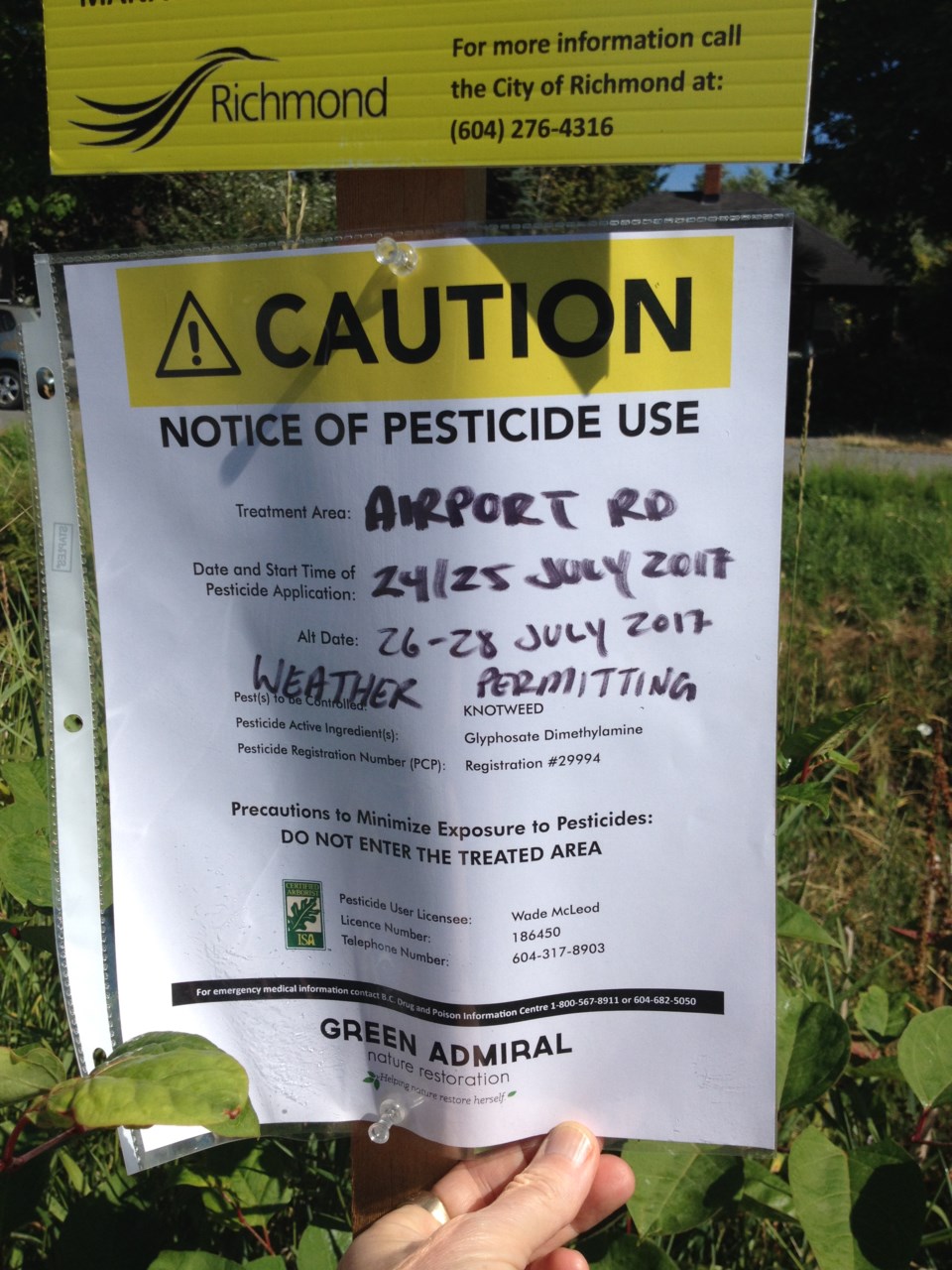Residents need not be overly worried about a herbicide that is currently being used in Richmond to tackle the invasive Japanese Knotweed, according to Karen Bartlett, professor of UBC’s School of Population and Public Health
Earlier this week a Burkville resident raised concerns about the application of the herbicide in front of her home where her organic garden sits.
“The discussion of the relation between Glyphosate and cancer has been going on for a long time. The number of cases is still very low so we don’t have a sure conclusion yet,” said Bartlett.
Last March, Glyphosate was added to California’s Proposition 65 list of chemicals known to cause cancer, according to the California Environmental Protection Agency’s Office of Environmental Health Hazard Assessment (OEHHA).
Despite that, Bartlett argues that the risk to residents is minimal if handled correctly.
“This herbicide is broken down by sunlight and doesn’t last very long, and you can tell if the vegetables are contaminated because they would die soon.”
The city also stressed that the herbicide was only applied to a small area, was applied using a hand pump – so it would not have travelled more than 1.5 metres – and was kept more than one metre away from any waterline.



